Capitalism is one of those bugbears that people like to complain about without ever defining. We can do better than that.
We can define it, we can criticize it, and we can offer alternatives.
What is Capitalism?
Under a capitalist system, if I own an orchard, that is my capital. I can pick apples myself, but I can't pick all of them before they go bad. So I might hire you to pick apples for me.
I might offer you a day wage ($5 a day) or a rate wage (5¢ per apple). Either way, the wage I'm offering you is less than the amount I expect you to make for me. To put it another way: If I pay you $5 a day, and I expect you to pick up enough apples that I can sell for $4 each day, why would I hire you? I'm losing money, cutting my own throat.
==It only makes sense for me to hire you if that equation goes the other way: I'm paying you $X because I expect to get at least $X+1 from having you on board.
If I'm hiring you for $5, it's ONLY worth it if that hour of your labor is worth $5 or more of value to me (in quality or quantity). I'm not going to give you $5 and sell the results for $4, I'd be down a dollar!
Workers naturally produce a surplus, which they don't capture.
(See also 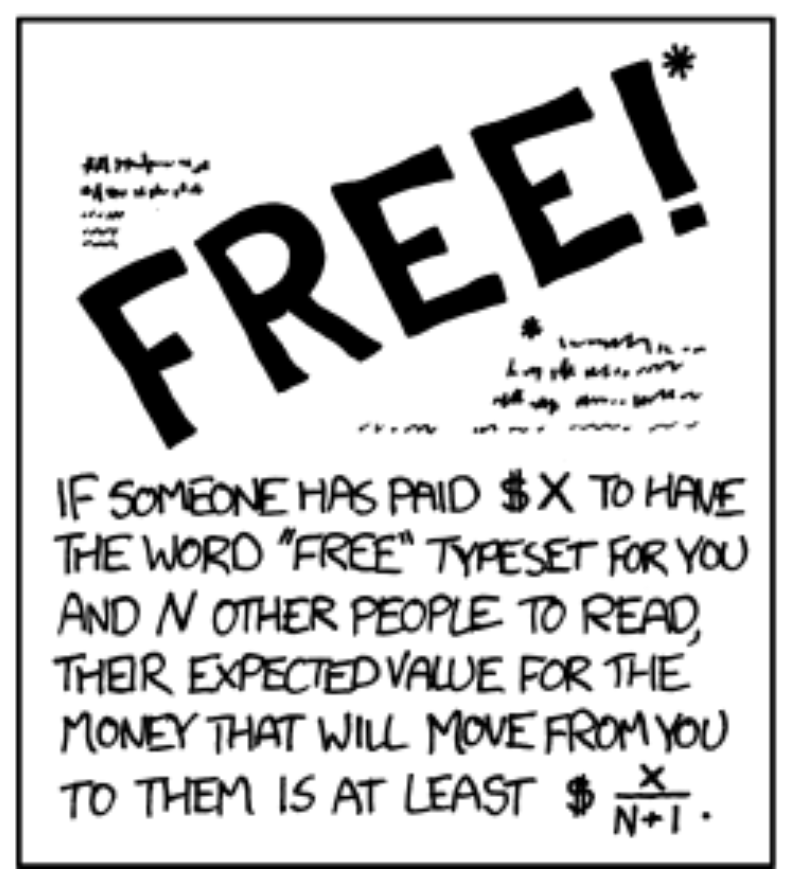 )
)
Look at housing: If I buy a house, I pay a mortgage on it. If I rent that house out to you, you pay me rent, and I use your rent money to pay my mortgage. I get equity from owning the house, and you get nothing.
Co-ops
Instead of paying a wage, we can do work that generates a profit, and then split that profit between the workers. I don't wholly own an orchard, we own the orchard, we pick its fruit and sell it and take the profit.
The argument today is that CEOs or owners or whoever is taking all the risk, so therefore they should also gain all of the rewards. The counter-argument is that is a CEO really generating enough value by "taking risk" to earn more than 350x as much as an average employee for the same company?
I can't find it at the moment, but I once read an #SSC article about how to reward the Jeff Bezos's of the world. Would anyone have made Amazon if he hadn't? Was it bound to happen? Should be be rich, allowed to profit from the massive risk he took, or should he be entirely deprivatized, taken over by the government, and taxed at 100%?
(update: the post is here "Online retail came into being because it’s a part of Progress; Jeff Bezos is just some annoying guy who claimed credit and captured the profits. (the obvious counterargument here seems to be that if Jeff Bezos didn’t do the admittedly hard work of creating an online retail giant, somebody else would have, perhaps a little later and a little worse; hundred billion dollar bills don’t lie on the sidewalk literally forever. I’m not sure what Thiel thinks of this; at the very least he might say our society fails to appreciate that some specific person does have to do the work for the work to happen.)" Longer aside about this post here)
My answer is: let him take his reward. Adobe won capitalism when they figured out that they have the design industry in a stranglehold. They switched from selling software to renting it, doubling down on DRM. This inspired numerous copycats (see Affinity, Photopea, Canva) to start reaching for a piece of that previously (largely) uncontested pie.
Let Bezos retire so that the next guy comes along and makes a good company. But increase taxes as well, especially inheritance taxes. He won. We don't need a dynasty of robber-barons for the next two hundred years. Let him take a victory lap and provide for his kids. For the rest? To the people!
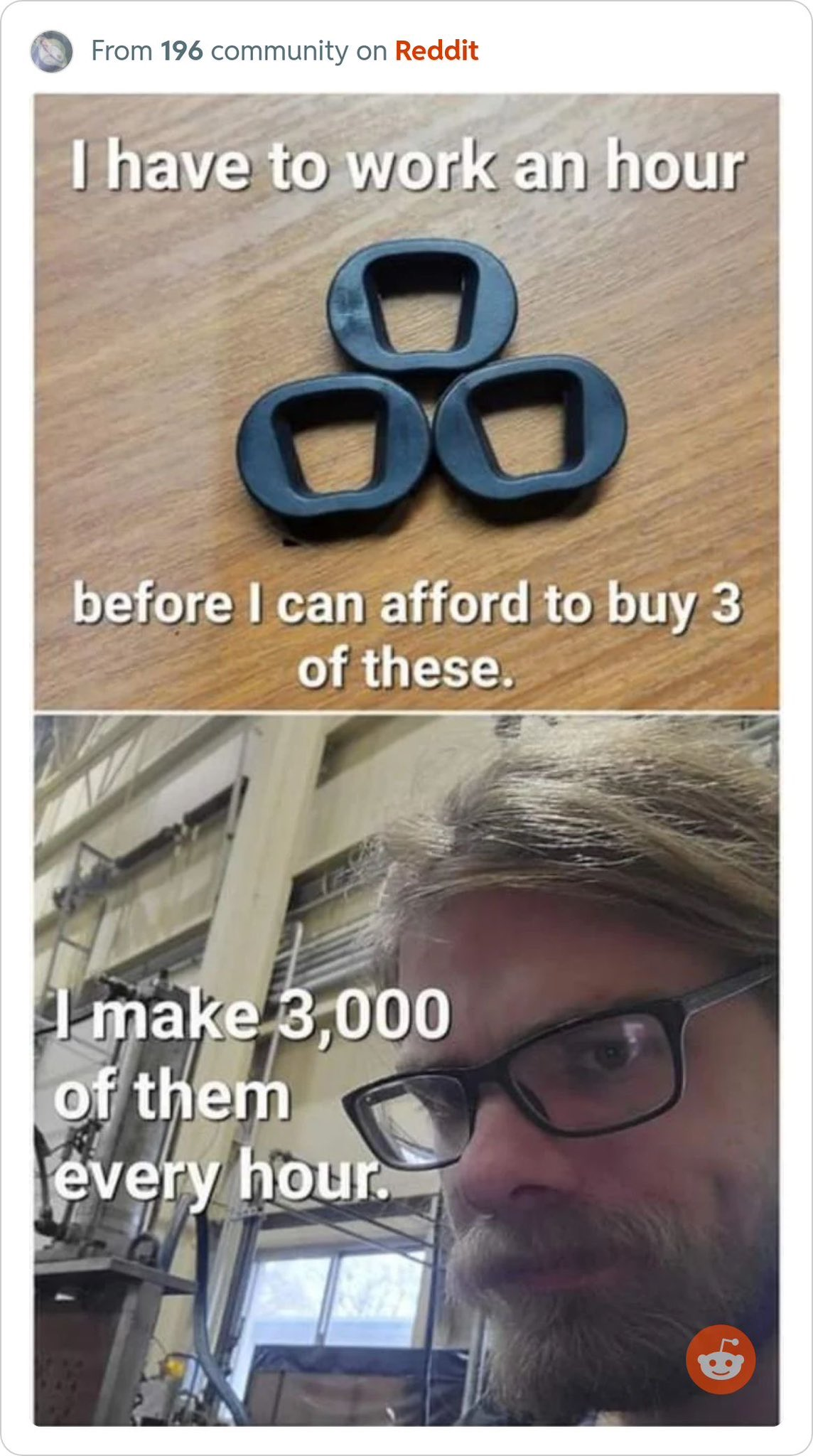
Problems with capitalism
It's not about how much government intervention it is, it's about who holds the power.
In capitalism the people who hold the power are the owners of the corporations, which produce goods.
This is Marxian Economics.
The French Revolution replaced feudalism with capitalism.
How does a corporation works
Two groups of decision makers:
Shareholders partially own the business. Typically owned by rich people. 1% of shareholders hold 2/3 of shares. There are only a handful of major shareholders. 20, 50 people or institutions own most of the shares.
The shares vote for the board of directors each year. 1 vote / share.
So if 1% of people own most of the shares, 1% of people make the decisions.
Then the decisions are made by the board of directors + the shareholders. This is about 50 people!
This cabal decides what we're making, how we're making, where we're making them, and what to do with the profits!
These decisions affect all of the employees, thousands or tens of thousands of people who live by these decisions! "We're going to close this factory and move it to China." or "We're going to put all of the profits that employees contributed and put it into advertising or a giant shrub or any other thing we choose."
This isn't democratic! Tiny group of people making decisions for others.
==Everyone lives with consequences, but excluded from making the decisions.
In politics we say no taxation without representation, we vote for the mayor and the governor. But in corporations? Meh!
So we give profits in the form of dividends and big CEO paychecks, helping the decision makers, not the employers.
Automation
Corps seek profits and they buy machinery to replace people if it's cheaper.
Then the laid off people get desperate and start taking any jobs. Grapes of Wrath: You can't feed a family on 5¢, but 5¢ is better than nothing, so you take the job that gives you no money because you have to. You don't have a choice.
This isn't the problem of the corporation anymore, just the fired former employees.
The social costs of the unemployed are higher than the profits of the corporation that fired them, but the corporation only cares about their own profits, not the net negative social cost they caused.
Government can't help
Government intervention isn't enough, the core system is flawed.
Take it to the extreme: the government deprivatizes the company and takes over, putting officials in charge. The structure remains, but now you have state officials instead of privately elected people, it's not better.
note: I find this part of Wolff's talk not as convincing as the rest ~30:00
Economic downturns
The system isn't stable. We average an economic downturn every 4-7 years (!).
And it produces inequality. See above re: shareholders paying themselves. But the system is producing that, not a given policy.
==86 of the richest people in the world have more wealth than the bottom 50% (~3 billion (!)) people.
So why are we still here? What are our alternatives?
Alternatives
See also Co-Ops, above.
This state is caused by decisions made by a small group of people inside the machines (corporations) that produce goods.
So let's democratize the production engines. Every worker gets one vote, an equal say in deciding what to do, how to do, where to do, and what to do with the profits of what they (themselves!) produce.
We got rid of kings, but kept our boards of directors.
If democracy is important, why don't we have it where we spend most of our time?
Worker Co-Ops. They decide to produce something, decide to do it as a collective, make the decisions together. Debate and then make a decision by majority vote.
This has been done!
REI in Washington, Mondragon in Spain.
Mondragon's Two rules
The workers together hire and fire and evaluate the manager.
Opposite of how we do it.
Workers decide if the manager's do a good job.
The highest paid person cannot make more than 8x the income of the lowest-paid person.
Compare to Corporate CEO to low-paid workers in the US is 350:1
We're looking out for ourselves. Grapes of Wrath self-governance.
Let Americans have freedom of choice. They can choose where to buy, where to work.
Will co-ops vote to ship their own jobs overseas? Not likely! But when a corp realizes they can move to India and pay a lot less, it's aaaawfullllly tempting.
Extracting profits from people
Tom #McHenry on unchecked economics: Afraid of Cops, tho
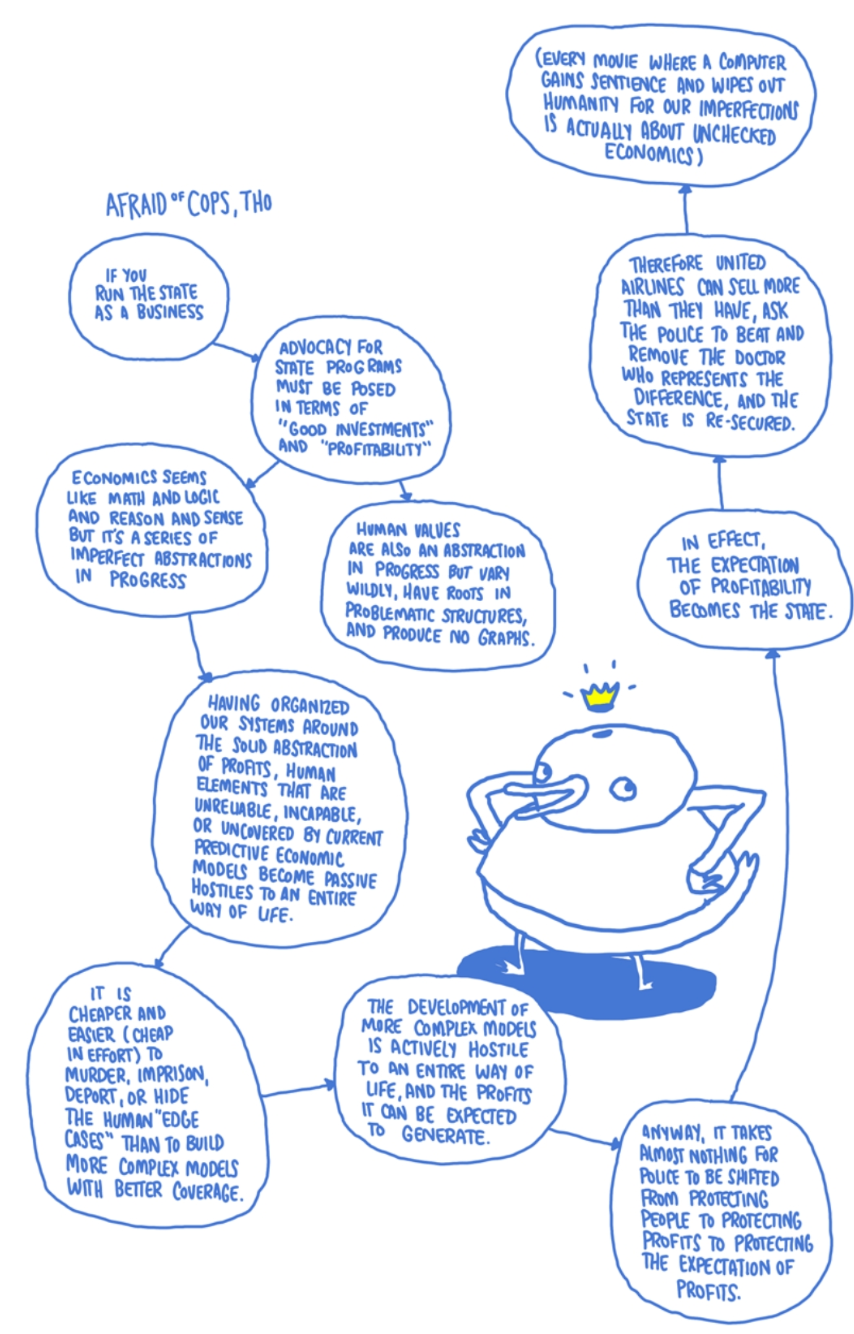
If you run the state as a business -> Advocacy for state programs must be posed in terms of "good investments" and "profitability".
Human values are also an abstraction of progress, but vary wildly, have roots in problematic structures, and produce no graphs.
Economics seems like math and logic and reason and sense but it's a series of imperfect abstractions in progress.
Having organized our systems around the solid abstraction of profits, human elements that are unreliable, incapable, or uncovered by current predictive economic models become passive hostiles to an entire way of life.
It is cheaper and easier (cheap in effort) to murder, imprison, deport, or hide the human "Edge Cases" than to build more complex models with better coverage.
The development of more complex models is actively hostile to an entire way of life, and the profits it can be expected to generate.
==Anyway, it takes almost nothing from protecting to problem to protecting profits to protecting the expectations of profits.
In effect the expectation of profitability becomes the state.
Therefore United Airlines can sell more than they have, ask the police to beat and remove the doctor who represents the difference, and the state is re-secured.
(Every movie where a computer gains sentience and wipes out humanity for our imperfections is actually about unchecked economics).
See Also
Democracy at work: Curing Capitalism by Richard Wolff
Bullshit Jobs
Dwarf Fortress Economy and How Dwarf Fortress Abandoned Capitalism and embraced Communism
This Tom #McHenry comic (excerpt from Platform):
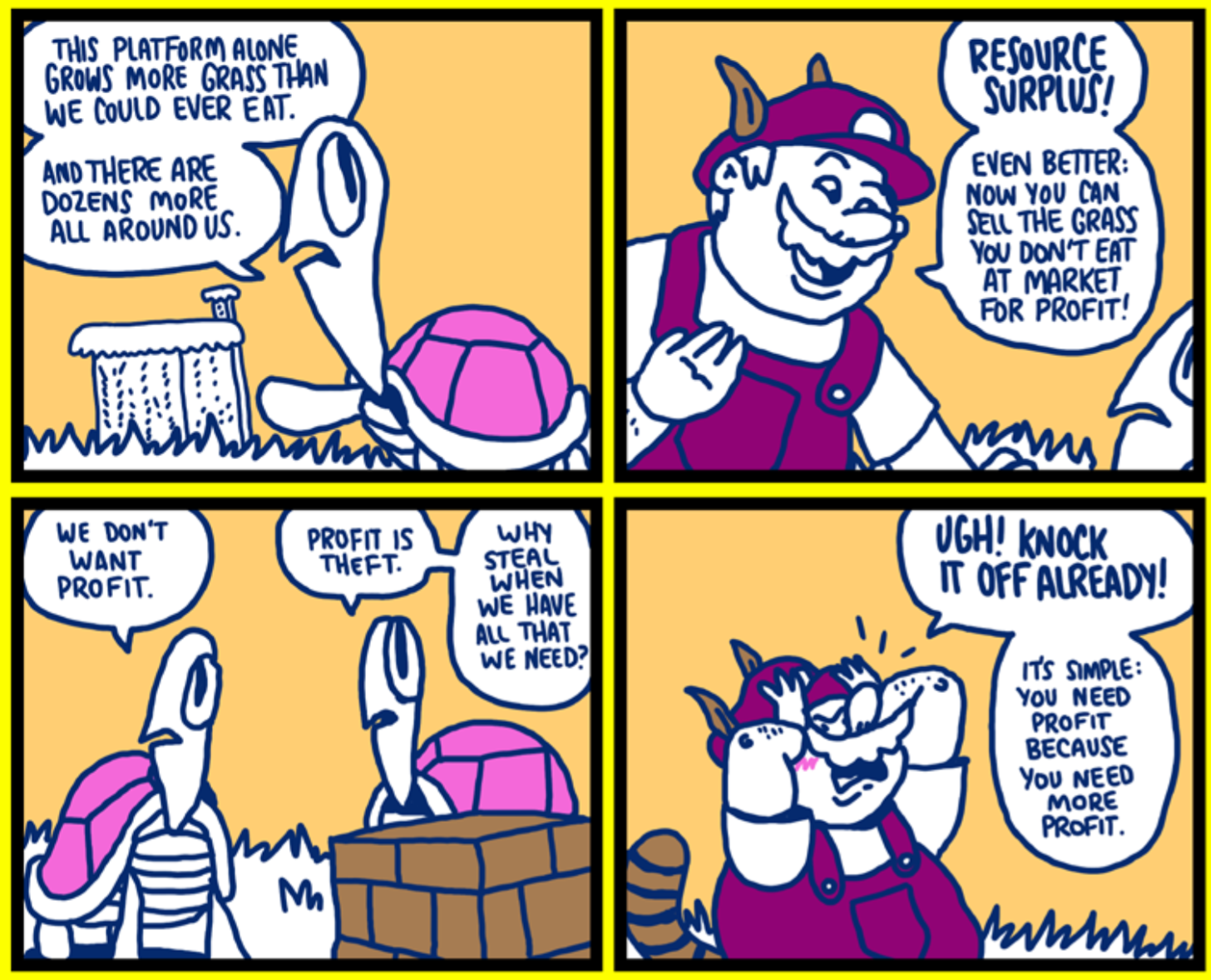
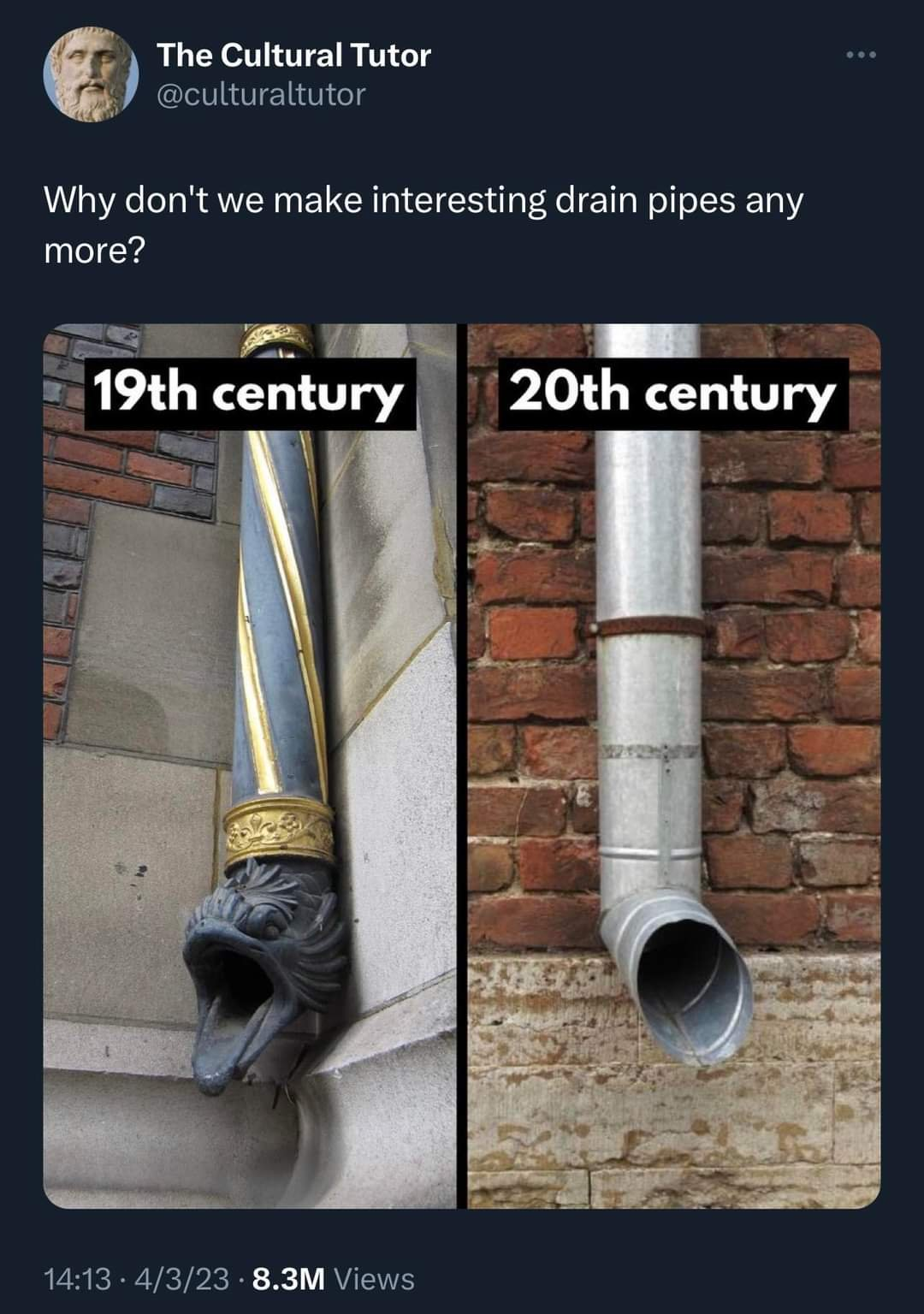
Because it's expensive to hire an artisan, a laborer, and it only costs a few pennies to extrude aluminum. Costs win.